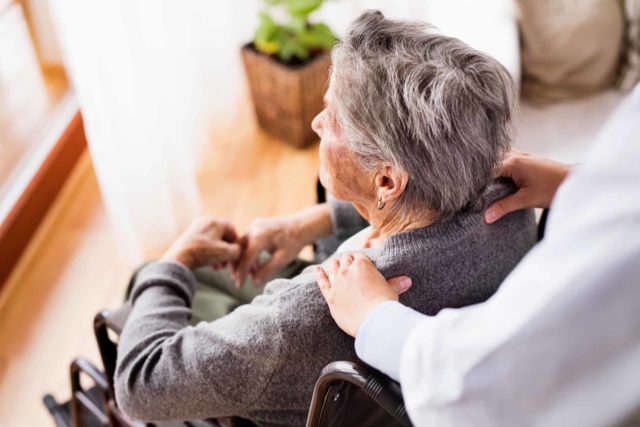The aim of therapeutic recreation is to improve all areas of function- physical, social, emotional, cognitive, and spiritual- and to foster full participation and quality of everyday life. These activities are usually overseen by a Recreational therapist or a certified therapeutic recreation specialist, which is a position that requires an advanced degree and licensure in the US.
It is estimated that there are over 19,000 licensed recreational therapists in the US- but what exactly do they do? The goal of Therapeutic recreation is to improve or preserve function, in all areas of life including cognitive, emotional, physical, spiritual, and social. The recreational therapist facilitates, supports, and coordinates activities with these goals in mind. From this, therapists may make therapeutic recommendations- including the need and benefit of mobility equipment or adaptive aids for their clients.
So, what is Therapeutic Recreation?
Basically, recreational therapy consists of activities to improve function. From playing a game to going out in the community, the goal is to improve or maintain participation in everyday life. The therapist strives to reduce the client’s discomfort or stress while reinforcing their cognitive and motor function. Over time, therapeutic recreation should help give the client a newfound sense of confidence and less anxiety surrounding situations or socialization.
Some Therapeutic and recreational activities for older individuals include:
Art
Art and crafts are a great way to inspire creativity and joy- while also helping with motor skill function and communication. Painting, drawing, and coloring can relieve anxiety or stress. It may also help to distract those living with conditions or disorders that cause other symptoms, like tremors or aphasia, feel more comfortable and confident. Some other art and crafting ideas for recreational therapy include these:
- Pottery or working with clay
- Wood arts
- Collage and mixed media projects
- Photography
Animal Assisted Therapy
Animal-assisted therapy is finally recognized for the amazing holistic benefits that it offers so many. From detecting low blood sugar in diabetics to predicting seizures in children, therapy animals can be an added support and assistance that works wonders. There are many different types of service animals, from dogs that assist individuals with blindness to pets that provide emotional support to owners out in the community; talk to your provider or doctor to determine the right route for you, as well as any documentation needed.
As for recreational therapy, many therapists implement animals into treatment. Pets are comforting and calming; seniors and children can benefit greatly from spending time with animals.
Cooking
Cooking is an activity that builds many different skills, from cognition to motor skills. The memory of favorite recipes, going out for the groceries and even preparing the meal all engage and improve the client’s skillsets. The reward is something tasty or a fulfilling meal that brings the individual closer to their own autonomy and independence. There are mobility aids that can assist in the kitchen for those with physical disabilities or limitations, too.
Puzzles and Games
What kinds of puzzles and games do you enjoy? Brain games can be a great therapeutic strategy to helping someone with dementia; it boosts memory and cognition- both of which are helpful to anyone struggling with brain injury, too. Games can stimulate the mind and challenge individuals to think critically and compete- which means they are engaged in the activity.
A simple jigsaw puzzle is another great form of therapeutic recreation, as it affects the fine motor skills when you must pick up pieces and put them together. It also causes you to use memory as it pertains to filling in the pieces of the puzzle. Puzzles may also be a social outlet for some. Many times, people that live together in assisted living, group homes, or residential facilities will sit around a table to do puzzles. This fosters engagement and socialization, both primary goals of therapy.
Music
Music can be extremely therapeutic and soothing to many. Studies have shown that individuals with chronic or progressive conditions that impact cognition and memory, like Alzheimer’s disease, can have moments of clarity and less stress when listening to music that they may have liked at previous times in their lives. Depending on the physical condition of the client, chair dancing is another way to enjoy the calming effects of the music while also engaging motor skills and preserving flexibility. Some clients and patients may enjoy singing as a means of building self-esteem and gaining joy; the therapist will plan activities and interventions based on their assessment of the individuals.
Recreational therapy is an engaging way to foster overall health and wellness among senior clients and those living with physical disabilities or mobility limitations. Want to improve your accessibility with mobility aids and equipment? Talk to the team at Pacific Mobility to learn more!
President, Husband, Father, Grandfather Graduate of UC Davis- Bio Sci Major- Go Aggies! Jeff has extensive experience in all of Pacific Mobility’s products and services, and specializes in accessibility products as well as stairlifts, ceiling lifts and custom wheel chairs. His hobbies include spending time with family, gardening, mountain biking, exercising and off road motorcycle riding.
24 years as Owner/President of Pacific Mobility Center – selling, installing, and servicing stairlifts, porch lifts, ceiling lifts, pool lifts, handicap ramping, specialty wheelchairs, scooters, power wheel chairs, and other power mobility devices
Certified Environmental Access Consultant since 2008
Licensed General Contractor since 1998
Certified Aging in Place Specialist since 2016
Board Member for Home Access Professionals
Member of Association of Members of the Accessibility Equipment Industry (AEMA)




